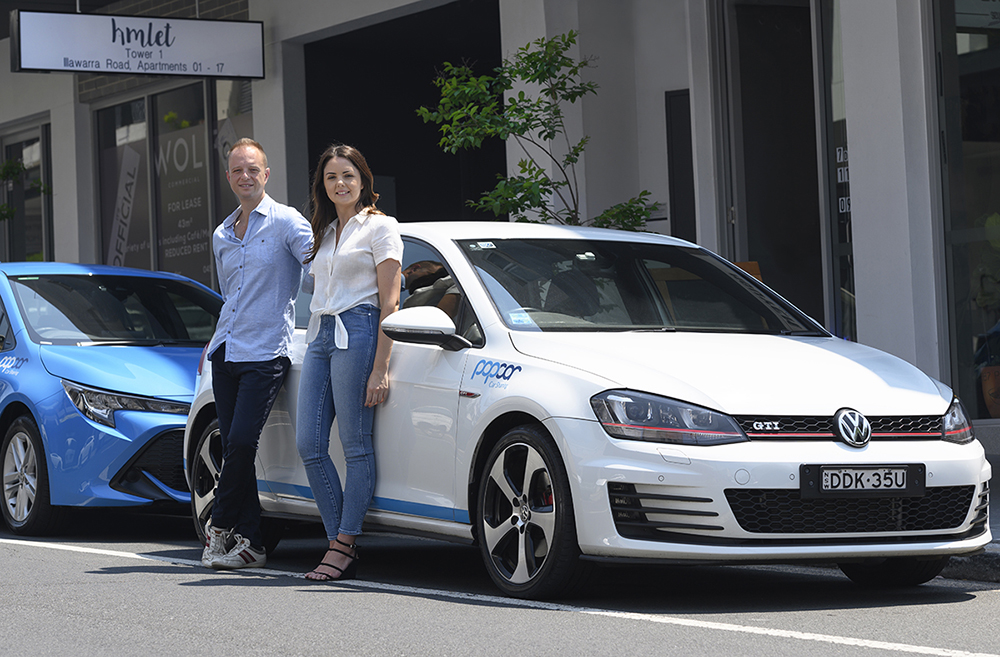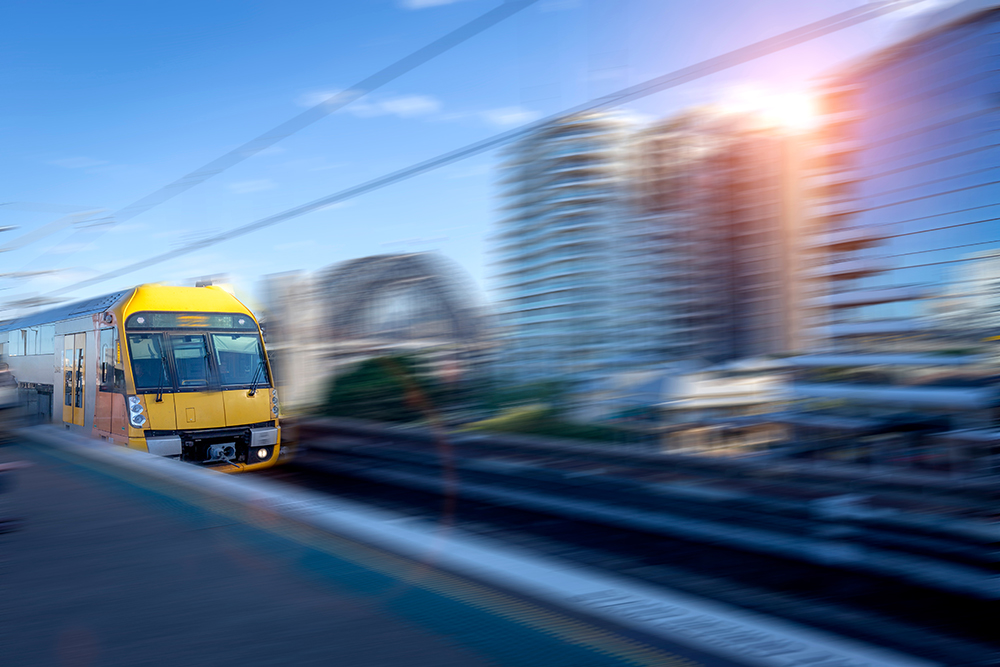We’re already into week six of the new financial year… and for some of us, we’ve already blown through our tax return.
To make sure 2020 doesn’t go off the rails anymore than it already has, we’ve enlisted the help of Kristy Wells, general manager of Popcar to shed some light on five easy ways we can cut back our spending and increase our savings.
Let’s do this.
Reconsider whether owning a car is still necessary

Anthony Welsh and Kristy Wells of Popcar. Image supplied
One of your biggest expenses outside of your rent or mortgage is owning a car. Whilst it can feel like an essential part of our lives as it gives us the freedom to go where we please, it is also a pricey thing to own and maintain. The average car costs over $7232 a year (excluding any repayments) but, a large number of Australians actually use their cars for less than four hours a week. Furthermore, according to Popcar’s research, over half of Australians (51%) are worried about the price of petrol, car insurance (50%), and upkeep (48%).
With other options available like car sharing and ride sharing, it’s worth reconsidering whether you need to own a car (or a second car), especially if it is sitting on the driveway burning a hole in your pocket most of the time. Popcar has seen its popularity over the last few months soar with new members signing up to the service, so why not test out this service as it could save you heaps of money in the long-term while still giving you the freedom you want to get around in style and ease?
Plan your meals to maximise your shopping trips while minimising costs
We all lead busy lives and it is so easy to reach for your phone, decide on a cuisine, order and have your meal delivered straight to your door – even more so with so many offers being sent to your inbox every hour. But is it worth it? Taking a little time to pre-plan your meals and create a shopping list is not only going to save you money, it is also proven to be better for the environment.
Why not ease into it and plan your meals for one week. Just head to the grocery store and make sure to stick to your shopping list. Never shop on an empty stomach as your willpower may waver in the treats aisle or you’ll buy more than you really need and end up wasting food.
One thing many people forget to consider is the cost of travelling to your regular grocery store. By minimising your trips, being prepared, and picking up everything you need in one big shop you can also minimise travel costs. Be sure to check out our latest recipes to get your meal-prep started.
Bring back pocket money to help you break your daily spending habits
Ahh, pocket money, who didn’t love the feeling of earning that purple $5 note of freedom. Well, it’s time to bring it back, except this time, you’re both the ’employer’ and the ’employee’. It’s the small, every day purchases that can easily build up to become a constant drain on your finances. Another coffee, a pack of gum at the check-out or shouting a round at the pub are things we don’t often factor into our monthly spending habits, but it’s these little things that can have a real impact on your finances in the long term.
Think about how much money you want to spend on these items and allocate yourself some “pocket money”, place this cash in your wallet and monitor it throughout the week! Guarantee you will rethink how you spend once you see how fast your pocket money disappears! Breaking out of your daily routines can be a powerful way to unlock instant savings. Make coffees at home, prepare your lunches for work the night before and when it comes to transportation, look at where you spend money where you may not have to, like parking and tolls.
Reassess how you get around

Public Transport in Sydney. Image purchased.
In these unprecedented times, we’re all looking at the best way to travel to ensure we can maintain social distancing while minimising travel costs. Public transport is adapting to the new normal but for many Australians, they are experimenting with alternative travel options, like hopping on a bike to get around while boosting their daily exercise or car and ride-sharing with friends and colleagues.
With the cost of public transport continuing to increase, it is worth reassessing how you can get around safely and in the most cost-effectively way. This can be done by planning your daily commute or weekends away and looking at all options to see what works best for you.
Compare your living essentials
Every month you have essential spending you can’t avoid like rent, phone bills, electricity bills, insurance policies; but when is the last time you took a step back and checked whether you are still on the best plan for your current situation?
It’s so easy to fall into the familiar trap and continue to use the supplier you’ve always used or stay on the plan that you’ve always had because you lead a busy life and let’s be honest, it’s not the most fun way to spend your free time. However, making the effort to set aside a rainy afternoon to jump on comparison sites and check what other options and offers are out there can save you a lot of money for no lifestyle change!
If you cannot find a lower deal it may be worth calling your current provider to ask if they can offer you a better rate or deal. If you don’t ask, you don’t get, and it could save you a few extra dollars which you can put towards your savings or your weekend plans.
Want to cut down on your cocktail expenses? Instead of heading out, why not lower your costs by staying in? Check out all you need to know about your at-home bar. Or if you’re not only after reducing your spending, explore how you can reduce your carbon footprint with these five easy steps.


